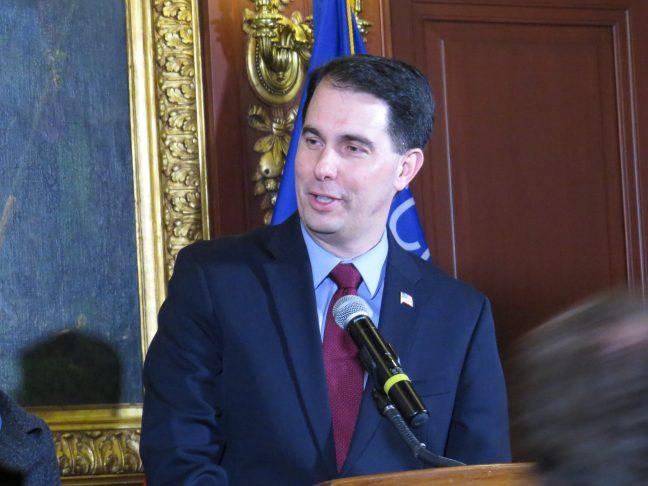During what may be the last months of Gov. Scott Walker’s tenure as governor, he’s continued to set himself aside as not only one of the worst politicians in the state, but as one of the worst in the entire country.
Now, circumventing and curtailing Wisconsin’s representative democracy is the latest of the quasi-despotic actions that have characterized his career. After appointing two members of the Senate and Assembly to different positions with the government, Sen. Frank Lasee, R-De Pere, and Rep. Keith Ripp, R-Lodi, Walker has left these positions completely open and vacant until this year’s elections.
In light of this undemocratic grievance, former U.S. Attorney General, under former President Obama, Eric Holder has sued Gov. Walker, claiming his grounds are Walker’s “affront against representative democracy.” Similarly, to build legitimacy in the claim, Holder quotes the Wisconsin case, State Ex Rel. Frederick v. Zimmerman: Right for a citizen to cast a vote for their representative is the basis of democracy, and when a citizen can’t carry out this right, “we will soon cease to be a Democracy.”
Walker partisans, on the other hand, are quick to defend the governor’s decision with their catch-all concerns of fiscal responsibility. A spokesperson for Walker contended having a special election would be too burdensome for the taxpayers and would be a waste of money with elections occurring so soon, anyway. Walkerian rhetoric and technicalities, however, are nothing more than just a sham — the implications of the choice is anti-democratic and plain wrong.
For citizens who live in these two areas, their voices have been effectively snuffed and ignored by the state — they no longer have a say in state politics, nor are their goals and livelihoods being fought for in the Assembly and the Senate. Citizens of this districts have every right to elect politicians of their choosing, and by not holding a special election, Walker is single-handedly one to blame. It’s not a matter of bickering or partisan politics, the decision to hold or not to hold a special election lies solely on the discretion of the governor.
Walker’s Twitter tirade against Soglin potentially significant act in gubernatorial race
On a national scale, the decision not to hold a special election could be based on the fear of democratic success in special elections in the past few months. In districts won by Trump with 20-point margins, we’re seeing Democratic candidates such as Connor Lamb in Pennsylvania coming away with a win — an indication momentum for the Democrats is clearly on their side going into the midterms this November.
Similarly, for Walker and the rest of Wisconsin Republicans, this wave of progress in different parts of the country could mean there is fear that their unconstitutional gerrymandering isn’t as impregnable as previously thought. If that’s the case, Walker would, by all means, try to hoard away his entirely Republican-run state as long as possible, carrying out a measure like this to ensure there wouldn’t be any democratic victories.
Walker’s challenger must combat the policies that have separated Wisconsin
The failings and flailing of Walker show he’s pulling out all the stops and will do whatever possible to hold onto power. In this mindset, he’s circumscribing democracy itself. Money has always been Walker’s go-to phrase for why he can’t accomplish anything, but representative democracy is undoubtedly more important than money.
Adam Ramer ([email protected]) is a junior majoring in history and political science.














